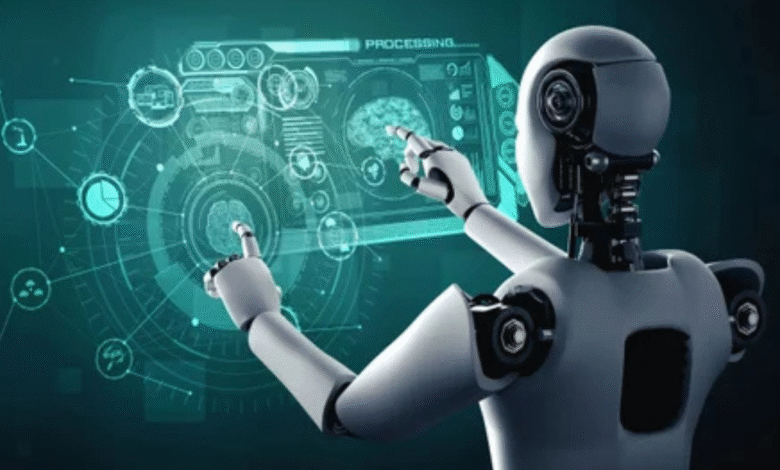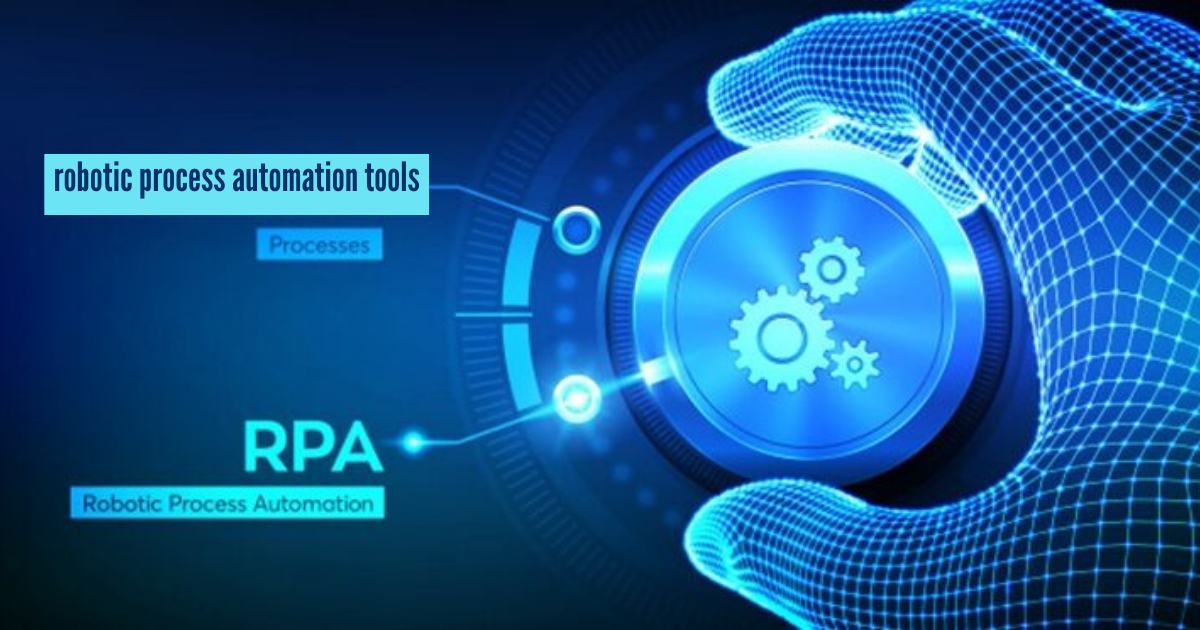
Robotic Process Automation Tools
Organizations continually seek digital solutions that enhance efficiency and reduce errors to achieve cost reduction in today’s fast-paced business environment. Robotic Process Automation (RPA) represents an advanced technology that utilizes software robots to handle routine, case-based tasks. Through the implementation of RPA tools, organizations achieve better accuracy and productivity, while providing human workers with room for strategic activities.
The practice of employing robotic process automation (RPA) technology to automate human work processes is referred to as RPA. Through RPA tools, robots replicate human behavior by pressing buttons as well as data entry and file activation while operating software installations. RPA implements robotic automation in various business sectors like financial industries and healthcare as well as service fields and HR to enable process automation through minimal human assistance. RPA relies on specific Robotic Process Automation Tools to operate, and how these tools allow organizations to boost their operational performance.
The definition of Robotic Process Automation (RPA):
Basic comprehension of RPA requires understanding this technology before examining particular tools. RPA operates as an automation form of business process automation which enables digital workers known as “software robots” to execute repetitive tasks. Robotic Process Automation Tools complete repetitive assignments which involve data extraction and input, as well as validation steps as well and processing requirements without human supervision. Through RPA implementation, businesses achieve process optimization as well as human error reduction and obtain higher operational efficiency.
Investigative operations often automate their processes through RPA by implementing the following system operations:
Invoice processing
Customer onboarding
Data entry and migration
IT support and system maintenance
Regulatory compliance checks
Software Robotic Process Automation Tools supply businesses with a straightforward method to automate their tasks through software application simulations. RPA tools lead to accelerated process performance and improved accuracy and a capability for growth when deployed.

Top Robotic Process Automation Tools
The expanding RPA market has led to numerous tool developments to fulfill business requirements at different levels of complexity. Different RPA tools exist in various stages of complexity while having diverse pricing structures and operating features. Organizations should assess various leading RPA tools which allow process automation according to their specific business needs.
- UiPath
The industry considers UiPath as one of its most prevalent and commonly utilized Robotic Process Automation Tools. UiPath provides an intuitive interface because it features robust automation abilities that benefit thousands of businesses that want operational streamlining. The automation platform UiPath provides businesses with two robotic functionality types which allow flexible deployment options for their automation solutions.
Key features of UiPath include:
- The Studio development platform gives users full control to design automated workflow deployments.
- The web-based Orchestrator system gives businesses the ability to supervise robots through remote management and scheduling as well as monitoring their operational status.
- The AI capabilities of UiPath allow users to implement machine learning technology alongside natural language processing (NLP) for the automation of intricate tasks.
- The Automation Hub serves as a system which enables businesses to monitor automation projects through a platform designed to integrate initiatives with organizational targets.
UiPath provides businesses with a user-friendly platform that scales based on their needs and benefits from active support from its broad community, thus becoming a preferred solution across different sectors.
- Automation Anywhere
Automation Anywhere serves as a main competitor in RPA solutions while delivering advanced automation capabilities for companies of all sizes. The cloud-native platform of Automation Anywhere enables businesses to automate functions between systems along with applications and processes.
The main characteristics of Automation Anywhere consist of:
- Users can design bots through a no-code or low-code interface of the platform so both technical staff and non-technical staff members can participate in automation development.
- Automation Anywhere IQ delivers AI-based analytics features that offer organizations important data about their automation performance metrics.
- The Bot Store component of Automation Anywhere enables businesses to browse through pre-made bots that users can customize for specific organizational needs and immediately deploy.
- The platform works as a cloud-based solution providing businesses with scalable capabilities as well as instant automation deployment options.
- Organizations seeking full automation capabilities will find Automation Anywhere to be an ideal solution because of its adaptable deployment methods and comprehensive feature selection.
- Blue Prism
The enterprise-grade Robotic Process Automation Tools Blue Prism stands out because of its advanced security platforms and governance control functionality. Blue Prism provides large organizations with capabilities to extend their automation projects while retaining management control over intricate procedures. The tool stands out because it fulfills stringent compliance and security standards, which makes it popular among financial institutions and healthcare organizations, together with public sectors.
The main characteristics of Blue Prism consist of:
Blue Prism implements intelligent automation features that combine artificial intelligence with machine learning as well as cognitive services to handle sophisticated data-driven operations.
The Blue Prism system provides scalable infrastructure that suits businesses which have to apply automation to high-volume processes across multiple departments or many users.
The platform maintains robust governance technology which provides authentication systems together with role-based permission controls and audit trails to fulfill regulatory specifications.
The central management console known as Control Room gives users full control to schedule and monitor as well and manage automation processes in real time.
Blue Prism represents an excellent solution for companies aiming to implement RPA with strict needs regarding security measures and governance standards and endless scalability potential.
- Kofax RPA
Kofax RPA serves organizations through its advanced automation technology, which provides businesses with both attended and unattended bots for processing applications. The unique trait of Kofax lets it connect with outdated systems, thus serving businesses maintaining outmoded software networks effectively.

The main characteristics of Kofax RPA consist of:
The platform from Kofax makes easy integration capabilities, which include both contemporary infrastructure and historical system setup, providing businesses that work with multiple technology generations versatility in their selection.
Through its cognitive features, Kofax delivers OCR functionality as well as machine learning algorithms which enable the solution to manage unstructured information and automate intricate procedures.
The analytics tools supplied by Kofax enable users to monitor automation workflow performance and use data-based insights for workflow enhancement.
The Kofax product suite includes entire end-to-end automation capabilities that span robotic process automation as well as document capture and workflow management systems.
Kofax suits the needs of businesses requiring an adaptable RPA solution which brings together different technological elements.
Conclusion
Process optimization and efficiency improvements together with cost reduction have become standard through robotic process automation tools in business operations. Business organizations can select one of several available Robotic Process Automation Tools which include both UiPath and Automation Anywhere alongside Blue Prism and Kofax, according to their unique operational requirements. RPA development progresses through artificial intelligence and machine learning implementations with robotic automation, which enables progressive sophistication of more capable business process systems.
The implementation of Robotic Process Automation Tools now represents a basic requirement beyond competitive advantage for organizations that want to succeed.


